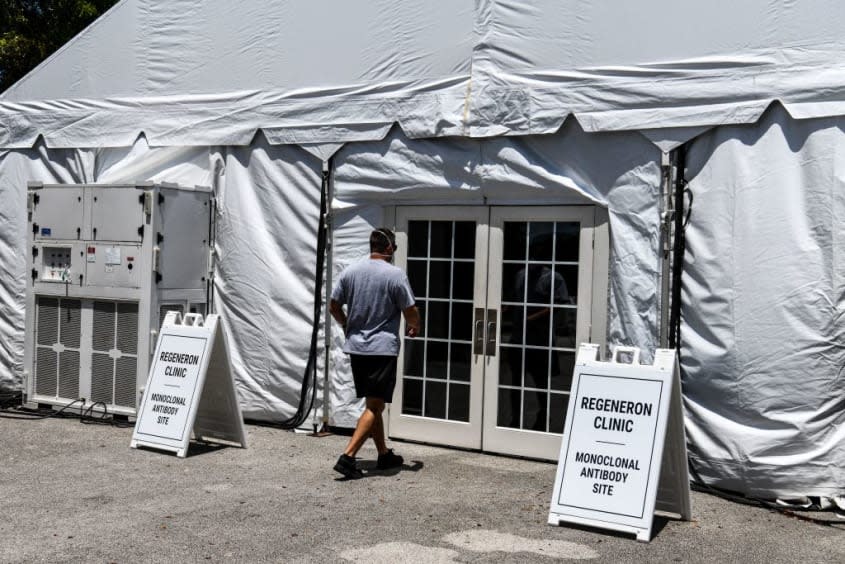Why doctors don't think vaccine skeptics' acceptance of a helpful COVID-19 treatment is sufficient

Monoclonal antibodies produced by Regeneron and Eli Lilly have become widely accepted as a successful treatment for COVID-19, reducing symptoms quickly and keeping infected people out of the hospital if they act quickly enough. Doctors and vaccine skeptics alike are proponents, but some medical experts argue the antibodies aren't enough on their own to make up for the slow-down in vaccine uptake, The New York Times reports.
The simple explanation is that the more people who get vaccinated, the fewer people there will be who need any sort of coronavirus remedy. Beyond that, the infusions also take a lot of time and require a lot of attention from hospital staff. They're also more expensive, costing the federal government about $2,100 per dose. "It's clogging up resources, it's hard to give, and a vaccine is $20 and could prevent almost all of that," Dr. Christian Ramers, an infectious disease specialist and the chief of population health at Family Health Centers of San Diego, told the Times. Basically, Ramers said, emphasizing monoclonal antibodies and playing down vaccines is akin to "investing in car insurance without investing in brakes."
The other worry is that they can't keep up with the pace of more serious outbreaks. For starters, the treatments only help individual patients, whereas vaccines have a snowball effect, and they also don't provide protective immunity (though the patients would have acquired natural immunity through their infection), the Times notes. Ultimately, while monoclonal antibodies are a vital tool in fighting the coronavirus, "something like that just doesn't scale," Dr. Howard Huang, the medical leader for Houston Methodist's infusion program, told the Times. Read more at The New York Times.
You may also like
Did Theranos Lose Afghanistan?
Seven Brides for Seven Brothers star Jane Powell dies at 92
Grand jury indicts lawyer Michael Sussmann, a 'strange twist' in John Durham's Russia investigation

